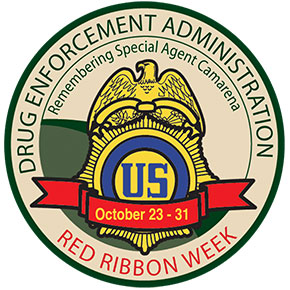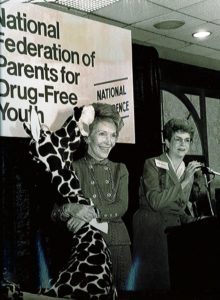The National Family Partnership (NFP), formerly the National Federation of Parents for Drug Free Youth, and its affiliates across America are deeply saddened by the loss of our former honorary chair, Nancy Reagan. The former First Lady was an inspiration and a catalyst for preventing generations of children from experiencing the devastating consequences of addiction.
Abuse and what it does to the child:
Most kids grow dramatically during the adolescent and teen years. Their young brains, particularly the prefrontal cortex that is used to make decisions, are growing and developing, until their mid-20’s.
Long-term drug use causes brain changes that can set people up for addiction and other problems. Once a young person is addicted, his or her brain changes so that drugs are now the top priority. He or she will compulsively seek and use drugs even though doing so brings devastating consequences to his or her life, and for those who care about him.
Alcohol can interfere with developmental processes occurring in the brain. For weeks or months after a teen stops drinking heavily, parts of the brain still struggle to work correctly. Drinking at a young age is also associated with the development of alcohol dependence later in life.
What is Addiction?
No one plans to become addicted to a drug. Instead, it begins with a single use, which can lead to abuse, which can lead to addiction.
The National Institute of Drug Abuse (NIDA) defines addiction as:
A chronic, relapsing brain disease that is characterized by compulsive drug seeking and use, despite harmful consequences. Addiction is a brain disease because drugs change the brain’s structure and how it works. These brain changes can be long lasting, and lead to harmful behaviors seen in people who abuse drugs.
The good news is that addiction is treatable. The treatment approach to substance abuse depends on several factors, including a child’s temperament and willingness to change. It may take several attempts at treatment before a child remains drug-free.
NFP Partners: A Strong Network
National Family Partnership’s work is recognized through its growing network of nearly 100 Partners, consisting on local coalitions, PTO groups, and parent committees. NFP State and Community Partners are organizations in which parents, youth, and other volunteers share and maximize resources, information and ideas. As our network of parents strives to work in local communities, NFP will strive to support and continue to build groups at the grassroots level, serving as a resource and a national voice.
NFP Drug Prevention: What They Do
- AWARENESS – NFP provides drug awareness by sponsoring the annual National Red Ribbon Celebration. Since its beginning in 1980s, the Red Ribbon has touched the lives of millions of people around the world. In response to the murder of DEA Agent Enrique Camarena, angered parents and youth in communities across the country began wearing Red Ribbons as a symbol of their commitment to raise awareness of the killing and destruction cause by drugs in America. In 1988, NFP sponsored the first National Red Ribbon Celebration. Today, the Red Ribbon serves as a catalyst to mobilize communities to educate youth and encourage participation in drug prevention activities.
- ADVOCACY – NFP is active in bringing the concerns and agenda of America’s parents and families to policy makers on a local, state, and national level. Joining NFP enables parents and coalitions to have direct access to our nation’s leaders and decision makers.
- RESOURCES – Our organization acts as a national clearinghouse of prevention literature. NFP has developed a series of prevention brochures to help educate our Partners with all the latest information on our National Campaigns such as: Lock Your Meds, Safe Homes / Safe Parties, and the Red Ribbon.
The DEA Red Ribbon Patch Program:
It is designed to provide Boy Scouts and Girl Scouts the opportunity to earn a patch from the Drug Enforcement Administration (DEA) by engaging in anti-drug activities in celebration of Red Ribbon Week. The purpose of the Patch Program is to empower young people to engage with their community through drug-free activities and strengthen their anti-drug beliefs.
DEA will award a Red Ribbon Patch and Certificate of Participation to qualifying Boy Scouts and Girl Scouts (while supplies last)! Check out the Scout Leader Toolkit for items you’ll need to complete the program.
Boy Scouts and Girl Scouts can earn a patch. 
Celebrate Red Ribbon Week in your community or your child’s school, and raise awareness of living a drug free life. Take the opportunity to talk to your kids about drugs.

